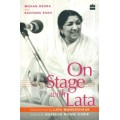Modern Technology of Petroleum, Greases, Lubricants & Petro Chemicals (2nd Revised Edition)
| Price: | Rs.1,875.00 |
Detail Of Modern Technology of Petroleum, Greases, Lubricants & Petro Chemicals (2nd Revised Edition)
| ISBN | 9789381039618 |
| Pages | 704 |
| Language: | English |
| Product Code: | 1 |
| Size(in cm): | 21*13.5 cm |
| Weight(in grams): | 500(approx) |
Description:
Lubricants, greases and petrochemicals are most versatile on the Industrial Plateau now a day. The significance of Lubricants, Greases and specialty products in the day to day functioning of nearly every machine part, instrument, appliance & device cannot be over emphasized lubricants reduce friction & wear between rubbing parts, thereby enhancing their life. A lubricant is a substance introduced to reduce friction between moving surfaces. It may also have the function of transporting foreign particles. The property of reducing friction is known as lubricity. The broad types of lubricating oils are as under; crankcase oils, gear oils, metal working oils, metal drawing oils, spindle and other textile oils, steam turbine oils. Synthetic lubricants have a higher viscosity index, but are less stable to oxidation. They are suitable for high temperature applications. In the modern industrial year, greases have been increasingly employed to cope with a variety of difficult lubrication problems, particularly those where the liquid lubricant is not feasible. Greases are essentially solid or semi solid lubricants consisting of gelling or thickening agent in a liquid lubricant. Greases and lubricants are one of the important products derived from crude petroleum. Petroleum is formed by hydrocarbons (a hydrocarbon is a compound made up of carbon and hydrogen) with the addition of certain other substances, primarily sulphur. Petroleum in its natural form when first collected is usually named crude oil, and can be clear, green or black and may be either thin like gasoline or thick like tar. The principal product of petroleum refining are motor gasoline, aviation gasoline, kerosene, jet fuels, diesel fuels, lubricating oils and fuel oils. Considerable quantities of petroleum wax, bitumen, liquid petroleum gases (LPG), industrial naphtha and coke are also produced. Petrochemicals are chemicals made from petroleum (crude oil) and natural gas. Petroleum and natural gas are made up of hydrocarbon molecules, which are comprised of one or more carbon atoms, to which hydrogen atoms are attached. The Indian lubricants industry claims to be the sixth largest in the world. The petrochemical industry in India has been one of the fastest growing industries in the country. This industry also has immense importance in the growth of economy of the country and the growth and development of manufacturing industry as well.
Some of the fundamentals of the book are types of lubricating oils, crankcase oils, gear oils, metal working oils, metal drawing oils, spindle and other textile oils, steam turbine oils, synthetic lubricants, formulations and com pounding of lubricants, additives for straight mineral oil gear lubricants, raw materials for lubricants, equipments for lubricants manufacture, reclamation of used lubricating oil, nature of contaminants in used lubricating oil, gravity methods of purification, metal forming and deforming lubricant, cutting oils, heat treatment oils, greases, sodium soap greases, lithium soap greases, aluminium soap greases, mixed soap greases, complex soap greases etc.
The objective of this book is to furnish comprehensive information about nearly all prominent types of lubricants, greases and petrochemicals. This book covers formulae, processes of various petroleum items. This book is an invaluable resource for entrepreneurs, existing units, professionals, institutions etc.
Reviews (0)
Write a review
Your Name:Your Review:
Note: HTML is not translated!
Rating: Bad Good
Enter the code in the box below:
Recently Viewed



 |
| 
